
Ph.D. Graduates
Back to: Commencement Home; B.S. Graduates; M.Eng. Graduates
Doctor of Philosophy 2023
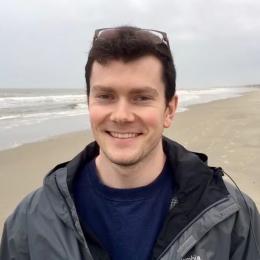
Benjamin Albert
Thesis title: “Biomanufacturing Methods for Recapitulating Native-Like Properties in Tissue Engineered Heart Valves.”
Advisor: Jonathan Butcher
Ben came to Cornell after majoring in biomedical engineering at the Ohio State University, supported by a full-tuition merit scholarship and cultivated with multiple diverse research experiences. Ben’s thesis research focused on advancing novel biomanufacturing technologies for fabricating complex living tissues like heart valves, a key clinical need for younger patients. His work was supported by a research collaboration with Medtronic and an NSF Graduate Research Fellowship. Ben invented a method for depositing materials along arbitrary curved geometries, dramatically improving their spatial accuracy and biomechanical integrity. Further, Ben developed techniques to fabricate tissues with embedded matrix fiber architecture to improve the fidelity of directional material properties important in native heart valve function. Ben also discovered that the imposition of incremental static stretch can achieve profound biomechanical strengthening and stable tissue growth for engineered tissues. Ben also created multiple mechanical testing and bioreactor setups necessary to stimulate and measure the responses of his engineered tissues. After graduation, Ben will continue his career in the biofabrication industry.
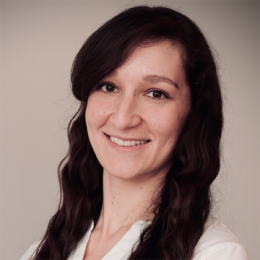
Nicole Chernavsky
Thesis title: “Third Harmonic Generation Imaging Techniques for Tracking Blood Oxygen Changes and Myelin Degradation in Mouse Models of Neurodegenerative Diseases.”
Advisor: Chris Schaffer
Neurodegenerative disease involves a complex interplay of physiological and structural changes in the brain that degrade the function of neural circuits and impact cognition. New tools are necessary to study these physiological and structural changes in animal models of these diseases, and Nicole’s research focuses on developing a nonlinear optical imaging technique, third harmonic generation, for this purpose. In one application, Nicole has shown that third harmonic generation spectroscopy can be used to measure the oxygenation of red blood cells, providing a tool for measuring blood oxygenation in three dimensions across a vascular network. In a second application, Nicole showed how third harmonic generation can track the degradation of myelin around axons deep in the brain. These two novel techniques will provide uniquely insightful views of some of the upstream (blood oxygen) and downstream (demyelination) changes occurring in the brain through the development of neurodegenerative disease, enabling the identification of mechanisms and the potential development of novel treatments. In addition to her own work, Nicole has been a highly-effective mentor to several undergraduate researchers in the lab, helping them bring their experimental skills and scientific knowledge to the point that they can truly contribute original ideas to our research endeavor.
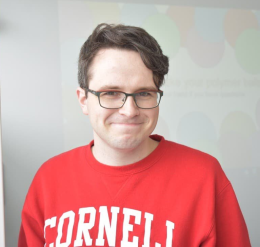
Marc Goudge
Thesis title: "Biophysical Consequences of Cancer-Associated Muc1 Expression.”
Advisor: Matthew Paszek
Marc completed his undergraduate degree at the University of Toronto in engineering science with an emphasis in nanoengineering prior to joining Cornell’s biomedical engineering program. Marc has been the leading force behind an out-of-the-box project that reimagines the role of cancer-associated mucins in disease progression. The overexpression of the mucin, Muc1, is a common hallmark of the deadliest solid tumor cancers. “Stunning” is an appropriate descriptor of Mark’s new discovery. His research strongly implicates Muc1 overexpression in multi-organelle dysregulation with broad and unexpected consequences on cellular functioning. Creative thinking, love of new technology and conviction to question the orthodoxy in the field are recurrent themes in Marc’s approach to research. He has been a valued member of the lab, adding positively to the group’s overall technical skill and collegial spirit. I will miss debating with Marc on everything from science and the latest research publications to culture and politics. Thank you and congratulations, Marc!
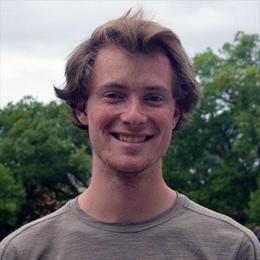
Benjamin Grodner
Thesis title: “Highly Multiplexed Spatial Mapping of Bacterial Species and Mobile DNA Elements in Complex Microbiomes.”
Advisor: Iwijn De Vlaminck
Ben grew up in Salt Lake City, Utah and studied biological engineering at Montana State University in Bozeman. During his Ph.D. in my lab, Ben developed cutting-edge imaging tools to spatially map complex bacterial communities. Ben first helped to develop a technology that utilizes binary encoding and spectral imaging-based decoding to produce micron-scale maps of the locations and identities of hundreds of microbial species in complex communities. Next, Ben developed a tool to map concurrently bacterial taxa and mobile DNA elements in diverse, spatially structured human microbiomes. He applied these novel technologies to study the spread of antibiotic resistance elements in oral plaque biofilms, to investigate the spatial biology of DNA phages in complex bacterial communities and, in collaboration with Drs. Chia-Yu Chen and David Kim of the Harvard School of Dental Medicine, to explore the spatial architecture of oral biofilms in patients with and without periodontal disease. In 2018, Ben received a Presidential Life Science Fellowship from Cornell University. In his free time, Ben plays bass, windsurfs, travels, skis and runs 100-mile races.
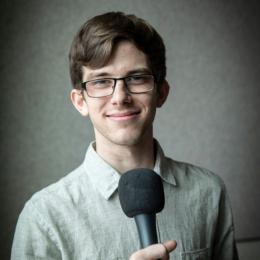
Charles Heinke
Thesis title: “Dissecting Muscle Stem Cell Fates Induced by Distinct Notch Ligands Through Engineered Ex Vivo Niches.”
Advisor: Benjamin Cosgrove
Charlie completed his bachelor’s degree in biomedical engineering with summa cum laude honors at the University of Florida. After joining Cornell’s BME Ph.D. program in 2018, he joined my lab, where he investigated the role of microenvironmental ligands in governing muscle stem cells. To accomplish these goals, Charlie engineered biomaterial models to present distinct ligands targeting the notch receptor system and showed that they have unique impacts on muscle stem cell fates. Charlie has presented his thesis research at BMES and AICHE national conferences. His work has resulted in one first-author manuscript in progress and other publications. Charlie has been equally dedicated outside the lab. He served as executive producer for the Science Blender podcast for five years and has been a frequent volunteer mentor in the Cornell CATALYST and Expanding Your Horizons programs. After graduating, Charlie will begin as a research scientist at iFyber here in Ithaca.
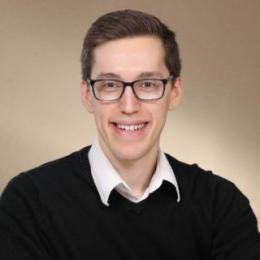
Joseph Long
Thesis title: “Elucidating Mechanisms of Mechanosensitive Gene Expression Using Genome-Wide Sequencing.”
Advisor: Jan Lammerding
Cells in the human body constantly adapt to their mechanical environment, whether in muscle, bone or other tissues. Joseph’s research in my lab has been dedicated to investigating how cells activate specific genes in response to mechanical stimuli, in a process called mechanotransduction. Joseph joined the Cornell BME program in 2017, after receiving his bachelor of science in bioengineering from Oregon State University and working as a post-baccalaureate at the University of Washington. During his Ph.D., Joseph developed and applied new tools to detect rapid changes in the cell nucleus when cells are mechanically stimulated, leading to new insights into cellular mechanotransduction. Joseph has authored two publications related to his research to-date, with another manuscript in preparation. Joseph’s outstanding work has been recognized with a Graduate Research Fellowship from the National Science Foundation, the Cornell Dean’s Excellence Fellowship and the BME Ph.D. TA of the Year award. Joseph also served as president of Cornell BMES graduate student chapter. Finding his true passion in science policy and advocacy, Joseph has taken on multiple leadership positions, including as president of Cornell Advancing Science and Policy (ASAP), a representative at the American Institute for Medical & Biological Engineering (AIMBE) Public Policy Institute, a National Science Policy Network (NSPN) Sci-Pol Scholar in Residence, co-organizer for the ComSciCon-NY Conference, and associate editor for the Journal of Science Policy & Governance. Joseph will start a position as a Biophysical Society (BPS) Congressional Science & Technology Policy Fellow in Washington D.C. this summer to advocate for evidence-based policymaking. We will miss you in the lab, but look forward to seeing you succeed at the highest level and using science to benefit society.
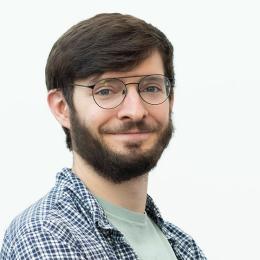
David McKellar
Thesis title: “Expanding the Scope of Single-Cell and Spatial Transcriptomics Technologies.”
Advisor: Benjamin Cosgrove & Iwijn De Vlaminck
David was raised in Atlanta and attended the Georgia Institute of Technology, where he worked in Manu Platt’s lab to study the protease interaction networks in breast cancer. David received a post-baccalaureate fellowship at the NHGRI at the NIH, where he worked with Paul Liu developing models of leukemia using patient-derived induced pluripotent stem cells. David conducted his Ph.D. research jointly within the labs of Ben Cosgrove and Iwijn De Vlaminck, where he spearheaded a suite of new RNA-sequencing approaches to study skeletal muscle biology with unparalleled scope, complexity and spatial resolution. David built the open-source skeletal muscle data commons known as scMuscle, which quickly became the go-to public resource of single-cell RNA-sequencing data in the field. David co-developed a novel technique known as STRS to spatially map the total transcriptome within tissue samples, which has revealed the role of noncoding and viral RNAs in muscles. His thesis resulted in three first-author and six co-authored works. David received a NIH T32 immuno-engineering fellowship, a genomics innovation seed grant, and honorable mention for the NSF Graduate Research Fellowship. He will start a research scientist position with Sanja Vickovic at the New York Genome Center this summer.
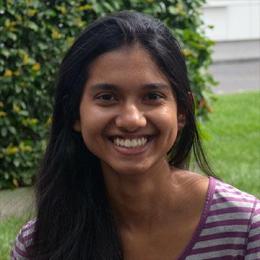
Raisa Rasul
Thesis title: “Automated Object Segmentation and Measurement in Pulmonary and Cardiac Diseases.”
Advisor: Anthony Reeves
Raisa Rasul received her bachelor’s degree in 2017 from University of Arkansas at Fayetteville and came to Cornell in 2017. Her thesis research concerns image understanding for medical imaging, especially for computed x-ray tomography. Her work has involved developing novel methods for precise image measurements, and image region classification using deep learning. She has made important contributions to problems such as measuring the amount of calcium in the walls of cardiac arteries in cardiac CT images of the heart and deterring the amount plural thickening of the lung surface in chest CT images, for the diagnosis and treatment of asbestos realtered disease. In all her work, the goal is to develop autonomous computer algorithms that can aid the physician in making a rapid and accurate disease diagnosis. After graduation, Raisa will be seeking a position in the medical imaging industry.
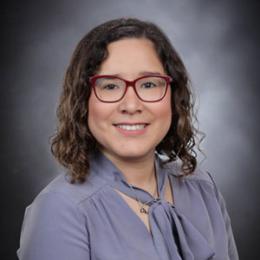
Mariela Rivera-De Jesus
Thesis title: “Engineering Escherichia Coli Outer Membrane Vesicles and Outer Membrane Proteins for Subunit Antigen Delivery and Vaccine Design.”
Advisor: David Putnam
Mariela first came to Cornell through a summer undergraduate research opportunity in Prof. Matt DeLisa’s lab in CBE. She excelled in Matt’s lab so when the chance came for her to join BME and the Putnam lab, we jumped at it! Mariela’s research project originally focused on new ways to enhance the efficacy of subunit vaccines by delivering unique combinations of immunological adjuvants. Then COVID hit, and Mariela’s research expanded into creating new ways to think about vaccines against the coronavirus. Additionally, she began exploring the mechanisms through which some specific bacterial proteins prime the immune response to subunit vaccines. Her research has culminated in new understanding about vaccine designs that may serve as a universal vaccine against coronavirus, as well as new understanding of the mechanism of action for new adjuvants. Her research excellence led to her receiving two training grant fellowships and at least two patents will be submitted based on her research that could lead to the creation of a new company focused on vaccine design and development.
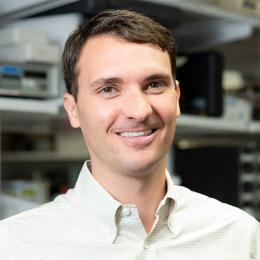
Grant Rowlands
Thesis title: “Understanding Bleeding, Thrombosis and Stroke Risks Associated with Pediatric and Adult Ventricular Assist Device Patients Through Multiple Mechanisms.”
Advisor: James F. Antaki
Grant joined the Antaki heart-assist technology lab in January 2018 after a year in industry as an R&D engineer at Thoratec (now Abbott) in their mechanical circulatory division. His graduate research explored bleeding and stroke risks associated with both adult and pediatric artificial heart pumps—he has published in ASAIO Journal and Artificial Organs and presented at numerous national conferences. Grant’s research aided in the development of the PediaFlow, a novel magnetically levitated pediatric artificial heart pump currently undergoing clinical animal testing. During graduate school, Grant also served as fund manager for Big Red Ventures—Cornell’s graduate-student-run venture capital fund. He received his B.S./M.S. in bioengineering from Penn State University and now works as a healthcare analyst at Point72, a long/short hedge fund, in their New York City office.
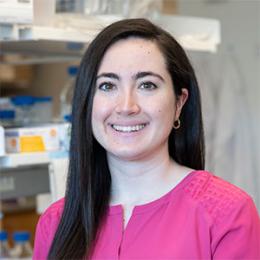
Brittany Schutrum
Thesis title: “Engineered Tumor-Stroma Models to Study New Roles of Hyaluronic Acid in Breast Cancer Invasion.”
Advisor: Claudia Fischbach
Before coming to Cornell, Brittany received her bachelor’s degree in biomedical engineering from the University of Rochester. Her Ph.D. project focused on developing in vitro models of cancer to understand how production of hyaluronic acid (HA) by abnormal breast epithelial cells regulates invasion into surrounding host tissue, the first step of the metastatic cascade. Contrary to the widely-held belief that HA promotes cancer cell aggression, Brittany demonstrated that HA can do the opposite under certain scenarios and inhibit invasion. These findings will help understand why HA-degrading therapeutics have failed in clinical trials and how such therapies could be improved in the future. For her research, Brittany pioneered many exciting new techniques and collaborated with several other groups in the BME department. Her scientific excellence and outstanding commitment to education and outreach has been honored with a Graduate Research Fellowship by the National Science Foundation as well as many awards for best poster presentations or talks at conferences. She has been a sought-after and extremely committed contributor to Cornell’s Cancer Research Partnership, a community engagement program that brings together cancer researchers and individuals affected by the disease. Her creativity, positive energy and commitment to making the lab a fun place will be greatly missed. We wish her all the best for the next steps in life and her career!
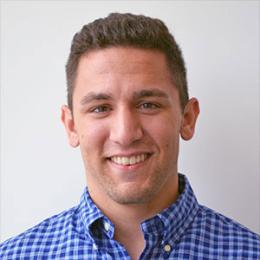
Gaetano Scuderi
Thesis title: “Elucidating Mechanisms of Cardiac Developmental Maturation and Cardiac Regeneration.”
Advisor: Jonathan Butcher
Guy came to Cornell from biomedical engineering at the Worcester Polytechnic Institute. Guy’s thesis project explored a new area of research for our group elaborating mechanisms of myocardial growth and maturation. Guy developed a novel method to decellularize embryonic hearts to separate and recover live cells. Guy then, in collaboration with the De Vlaminck lab, created a single-cell transcriptomics library of fetal ventricular growth and maturation. He further engaged spatial transcriptomics profiling to develop one of the first spatial atlases of ventricular maturation, which was published in Nature Communications. Guy also developed a novel bioreactor system capable of applying arbitrary cyclic stretch profiles to engineered myocardial tissues while simultaneously monitoring their contractile force and beating frequency in high throughput. With this system, Guy demonstrated that the pause in stretch during diastole, or ‘duty cycle’ in engineering terms, is a unique parameter that enhances cardiomyocyte organization and tissue strength. Guy further developed and validated a method for recovering the cell-free extracellular matrix from fetal hearts, which he showed induces cardiomyocyte proliferation and maturation—two key needs for myocardial regeneration. Guy was supported by a T32 fellowship from the Center for Vertebrate Genomics and a grant from Additional Ventures. Since graduating, Guy has been an R&D scientist at Kanvas Biosciences.
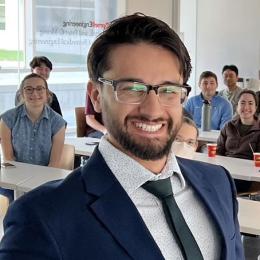
Adrian Shimpi
Thesis title: “An Integrative Approach Examining the Role of Fibrotic Extracellular Matrix on Invasive and Stem-Like Cancer Cells.”
Advisor: Claudia Fischbach
Adrian received a B.S. in bioengineering with a minor in chemistry from the University of Utah and pursued engineering-inspired cancer research for his Ph.D. Cancers consist of many different subtypes of cancer cells, a phenomenon described as tumor heterogeneity. Better understanding tumor heterogeneity is critically important as it determines a patient’s response to therapy. Adrian took on this challenge and elucidated how the complex microenvironmental conditions within a tumor influence the emergence of tumor heterogeneity. He identified that altered metabolism as well as specific features of extracellular matrix are key regulators of tumor heterogeneity and signaling. For this work, he established an impressive number of new experimental and analytic methods that have not only advanced his own research but also that of almost everyone else in the lab. In addition to his numerous scientific contributions, he is deeply committed to teaching and mentoring and was the instructor for BME 4190 last fall, a lab class taken by BME seniors. He is the recipient of a Graduate Research Fellowship by the National Science Foundation and will pursue postdoctoral research next. It is hard to imagine the lab without him—we are forever grateful for all that he has done to help advance our research and make the lab a better place overall.
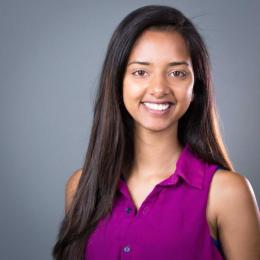
Eti Sinha
Thesis title: “Somatics Mutations in the Solid Tumor Microenvironment.”
Advisor: Olivier Elemento
Eti joined the Elemento lab in July 2019 and stood out as an experienced researcher who has great potential to make an impact as a future scientific leader. Eti has demonstrated grit and passion for her research interests in cancer biology and genomics. Furthermore, Eti has impressively balanced her research with teaching and leadership roles. Eti gained technical expertise in computational biology techniques and field expertise in stem cell genetics at Stanford University. Prior to this, Eti worked on several projects at the J. Craig Venter Institute and University of California, San Diego. Eti started her research at my lab immediately with her thorough research background in hematological malignancies. She is working on understanding how humans age and why certain individuals develop leukemias and lymphomas. Her research also focuses on understanding why some solid tumor cancer patients develop hematological malignancies as a secondary cancer during remission. Her work is important in preventing cancer remission after chemotherapy or targeted immunotherapies. Impressively, Eti’s research is very translational and can be applied to how Weill Cornell Medicine and New York Presbyterian hospital systems treat hematology-oncology patients.
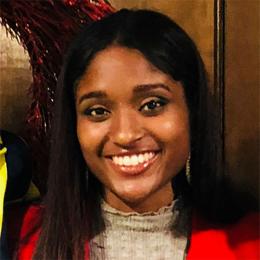
Chelsea Stephens
Thesis title: “Micro-Vascularization of Bioengineered Fat for Post-Mastectomy Breast Reconstruction.”
Advisor: Jonathan Butcher
Chelsea joined our research group after a post-bac research program at the University of Michigan and her B.S. in biomedical engineering from Syracuse University. Chelsea’s thesis focuses on creating engineered tissue flap grafts for reconstructive surgery, in particular vascularized fat grafts for breast cancer patients. Chelsea developed novel biological hydrogel formulations with tuned tissue elasticity and viscosity and demonstrated that these properties independently and synergistically coordinate the differentiation of stem cells towards fat and myofibroblast phenotypes. Further, Chelsea co-developed a novel vascular conduit capable of testing the effect of multiple fluid shear stress and vorticity profiles on endothelial sprouting and stromal cell differentiation. Chelsea was supported by a NYSTEM Stem Cell Fellowship as well as NIH grant support. Chelsea also founded a company to expand access to wine education and build a wine community among Black millenials. Chelsea is a tireless champion of community engagement and mentorship. She was recognized as Graduate Student of the Year for Diversity Programming in Engineering, received the Social Justice Award and was an AIMBE policy workshop fellow. After graduation, Chelsea will continue to work at the interface of entrepreneurship, community engagement and public service.
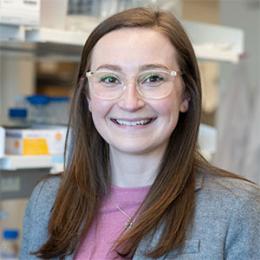
Regan Stephenson
Thesis title: “Type I Collagen Drives Tumor Invasion Through Modulation of Macrophage Phenotype.”
Advisor: Claudia Fischbach
Regan received a B.S. in bioengineering from the University of Utah and joined Cornell to study how immune cells regulate cancer. The first part of her Ph.D. focused on the development of organoid models to evaluate the therapy response of diffuse large B-cell lymphoma. When her initial Ph.D. advisor moved to a different institution, Regan decided to join our lab and started a completely new project right when the COVID pandemic hit. Using a combination of engineered model systems and a broad range of experimental techniques that she established in a very short period of time, Regan identified that macrophage interactions with collagen increase their ability to promote tumor invasion. These findings are important as macrophages in tumors frequently co-localize with collagen-rich regions. Regan stood out in the lab because of her excellent time management and organizational skills, resilience and commitment to excellence in every regard. She is the recipient of a Graduate Research Fellowship from the National Science Foundation, a T32 fellowship from Cornell’s NIH-funded immuno-engineering training grant, and was a participant in the Colman Inclusive Leadership Program. We will miss her energy, mentorship and awesome questions during group meetings and wish her all the best as she is embarking on a career in industry.
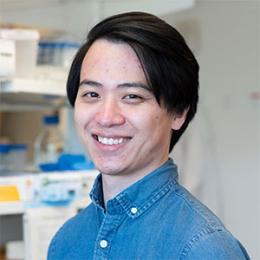
Matthew Tan
Thesis title: “In Vitro Modeling and Analysis to Investigate the Metabolic Regulation of Breast Cancer Invasion Towards the Vasculature.”
Advisor: Claudia Fischbach
Matt received both a bachelor’s and master’s degree in biomedical engineering from the University of Michigan and worked in industry before joining Cornell. For his Ph.D. project, he integrated microfabrication and computational tools with cancer research to study how tumor invasion is regulated by metabolism and interactions with blood vessels. He identified that tumor cells reprogram their metabolism to invade. Additionally, he established that endothelial cells support invasion towards blood vessels by secreting factors that alter tumor cell metabolism. He received multiple awards highlighting the quality of his work and impressive communication skills including a predoctoral grant from Rochester’s Breast Cancer Coalition and a poster award by the Physical Sciences-Oncology Network of the NCI. In addition to being an excellent scientist, Matt also stands out because of his dedication to teaching and mentoring. In particular, he has been a key contributor to the development of BME 4190, a required (and very popular) lab course for BME seniors graduating with a concentration in molecular, cellular, and systems engineering. Last fall, he taught the class as an instructor. Matt has been a tremendous asset to our lab in so many ways and a wonderful friend and colleague that will be missed. We wish him the very best as he is moving back to Ann Arbor to pursue a postdoc at the University of Michigan.
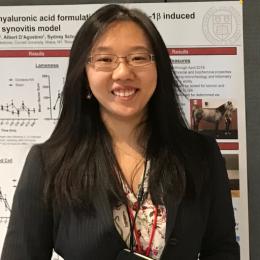
Yuyan Wang
Thesis title: “Lubricin in Post-Traumatic Osteoarthritis, From Naturally Occurring Disease to Recombinant Therapeutics.”
Advisor: Heidi Reesink and Matthew Paszek
Yuyan joined Cornell’s biomedical engineering Ph.D. program after graduating from Georgia Tech. Her research in the Reesink and Paszek labs investigated a natural biolubricant called lubricin, which protects our joints from the wear and tear of daily motion. Yuyan’s work led to many firsts, including the first therapeutic lubricin product manufactured in human cells, the first glycoengineered lubricin product and the first lubricin-inspired engineered proteins. Her work also contributed to debunking long-standing assumptions in the field regarding when lubricin production is increased or decreased in the body following traumatic injury. Her talent has been recognized by several awards, including a National Science Foundation Graduate Research Fellowship. Yuyan has been a valued teaching assistant for CHEME 2880: Fundamentals of Biomolecular Engineering where she generously dedicated her time in training the next generation of biomolecular engineers. Yuyan’s talents extend to the kitchen, where she has churned out supreme baked goods and pastries for the lab. She will continue her scientific career as a postdoctoral fellow in the Nguyen lab at the University of North Carolina. Congratulations, Yuyan!
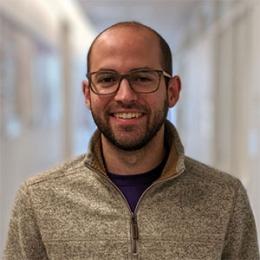
Matthew Whitman
Thesis title: “Bone Mineralization Regulates Breast Cancer Metastatic Disease Progression.”
Advisor: Claudia Fischbach
Matt received his bachelor’s degree in biomedical engineering from the Worcester Polytechnic Institute. Before joining Cornell, he worked in industry and at MIT as a design engineer and senior research support associate, respectively. For his thesis research, Matt developed a library of new tools to study bone metastasis, the leading cause of metastasis in breast cancer patients. He established model systems in which he could selectively control the mineral content of bone matrix. Using these systems in combination with advanced imaging techniques as well as various collaborations within and outside of our department, Matt demonstrated that reduced bone matrix mineral content can activate tumor cell growth and develop into metastatic lesions. This work gives important new mechanistic insights into why women with reduced bone mineral density are more likely to develop bone metastasis. Matt is the recipient of a National Science Foundation Graduate Research Fellowship and his research accomplishments and excellence have been honored with a Young Investigator Award from the International Conference on Chemistry and Biology of Mineralized Tissues. In addition to being an excellent scientist and unofficial leader of the bone subgroup in our lab, Matt likes tinkering. We will miss him greatly and his skill in finding easy solutions to challenging problems. We wish Matt the very best as he is entering the next stage of his career.
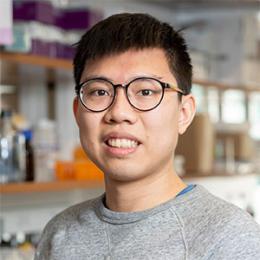
Chia-Wei Yeh
Thesis title: “Coacervate-Filled Lipid Vesicle for Protein Delivery.”
Advisor: Yadong Wang
Chia-Wei joined the Yadong Wang lab five years ago. He explored the use of microfluidics to make artificial cells. He discovered and identified an easier way to make these lipid-covered coacervates. This project will live on with new students taking over the baton to translate this protein delivery platform into a therapy. This is a testament to Chia-Wei’s ingenuity and resolve to overcome difficulties in research and persevere. Congratulations on a job well done and good luck with your future endeavors!
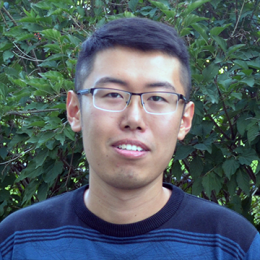
Jinwei Zhang
Thesis title: “Physics-Based Deep Learning Methods for Magnetic Resonance Data Sampling, Image Reconstruction and Quantitative Susceptibility Mapping.”
Advisor: Yi Wang
Jinwei joined the Wang medical imaging group after receiving his B.S. in optical science and computational mathematics from San Yat-sen University. His Ph.D. thesis work has helped to improve MRI scanning speed that is very valuable in clinical practice. Standard MRI examination takes a long time (up to an hour) to generate many images at various spectral values (including T1, T2, T2*, susceptibility and diffusion) and over multiple time points (including echo times), which are referred to as multiple contrasts. There are redundancies among these multiple contrast images, such as structural similarities corresponding to the same organ. Jinwei has developed a deep learning approach to characterize these redundancies and accordingly and optimally sped up through undersampling data acquisition. He has further developed another deep learning approach informed by imaging physics to reconstruct multiple contrast images from undersampled data. These deep learning approaches are combined as learned acquisition and reconstruction optimization (LARO), which is being applied to acquire multiple contrasts with acceleration by 4 folds without compromising image quality. After graduation, he plans to continue deep learning development work for medical imaging.
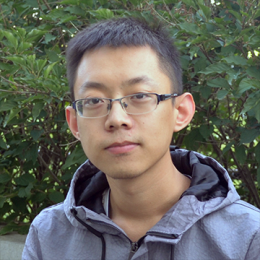
Qihao Zhang
Thesis title: “Estimating Perfusion and Vascular Properties From Medical Images: Quantitative Transport Mapping (QTM).”
Advisor: Yi Wang
Qihao joined the Wang medical imaging group after receiving his B.S. in biomedical engineering from Tsinghua University. His Ph.D. thesis work has helped to solve a very important problem in medical imaging practice, tissue blood flow quantification from dynamic imaging, which is known as tissue perfusion quantification. Traditional perfusion quantification uses a global arterial input function, which requires users to define an arterial region and has fundamental errors from not preserving local mass conservation. Qihao has been developing a novel fluid mechanics approach for quantitative perfusion study. His work has introduced the rigor and precision of fluid mechanics or chemical engineering on studying transport phenomena to medical imaging. Accordingly, the technology from his work is coined as quantitative transport mapping (QTM). A specific innovative aspect of his work is the creation of a multiscale complete vasculature model with corresponding computational fluid dynamics for an organ in the body, which has opened a window into microscopic details of a voxel in medical imaging. Using deep learning to infer microscopic flow from macroscopic imaging data, his QTM work promises to shift the paradigm of tissue perfusion with accurate quantification in medical imaging, including MRI, CT and PET. After graduation, he plans to continue his QTM work to translate it into clinical practice.
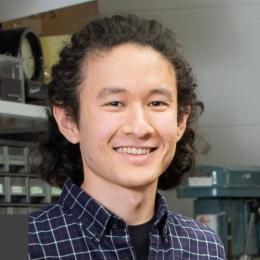
Mansur Zhussupbekov
Thesis title: “Advances in Numerical Modeling of Thrombosis With Applications to Assisted Circulation.”
Advisor: James F. Antaki
Mansur received his B.S. degree in mechanical engineering from Nazarbayev University and joined my lab in 2016 at Carnegie Mellon University, which moved to Cornell in January of 2018. Mansur’s research elucidated the role of von Willebrand Factor (vWF) in mediating thrombosis (blood clotting) under conditions of high shear—as would occur in heart-assist devices as well as arterial stenoses (blockages.) Mansur coupled numerical optimization with computational fluid dynamic (CFD) simulation to automate the design an improved blood flow path in a pediatric heart pump. Since joining Cornell, Mansur has been a valuable asset to the students in his lab conducting numerical modeling. Mansur is also an accomplished musician, skilled at the drums, keyboard and dombyra, and has been an important member of a jam band for many years. As of his dissertation defense in December 2022, Mansur had authored eight publications (three as first author) with a total of 51 citations (per Scholar), and 470 followers on Instagram. Mansur is currently working as a postdoctoral associate in the Heart-Assist Technology lab at Cornell, conducting an experimental and numerical investigation of blood clotting in miniature heart-assist pumps.

